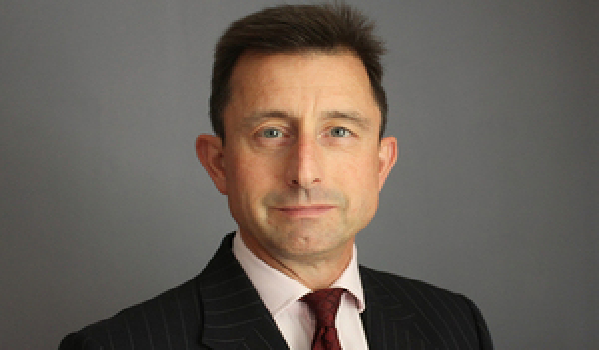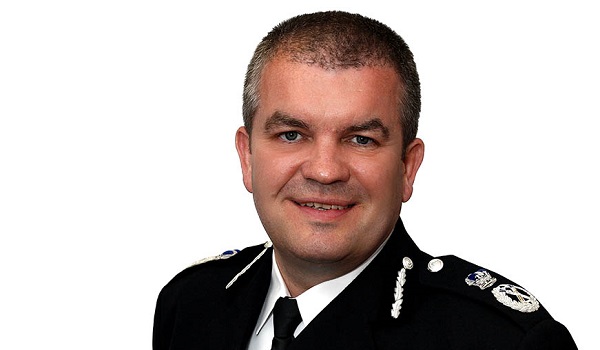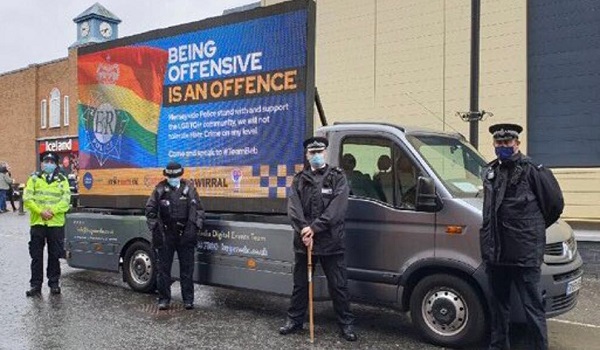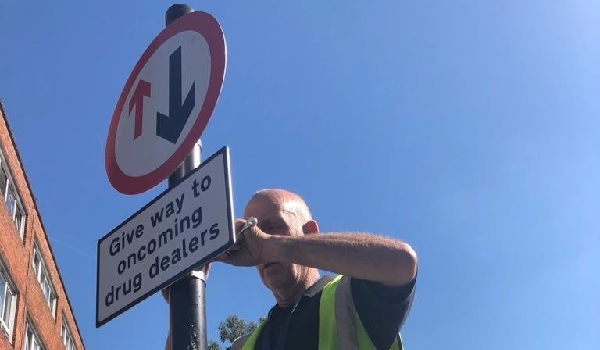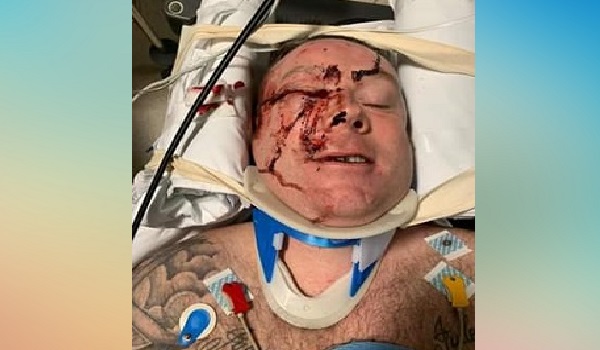MPS anti-corruption measures 'not fit for purpose'
The Metropolitan Police Service’s (MPS) approach to tackling corruption in its ranks is “unprofessional” and “not fit for purpose”, Her Majesty’s Inspectorate of Constabulary and Fire and Rescue Services (HMICFRS) has found.
HM Inspector Matt Parr said his “overwhelmingly critical” report found that the force had failed to learn lessons from the notorious unsolved 1987 murder of private eye Daniel Morgan, an investigation that was hampered by police corruption. Despite 35 years having passed, MPS procedures for rooting out corrupt staff remain “fundamentally flawed” and the force even displays a “degree of indifference” to the risks.
He said: “It is unacceptable that 35 years after Daniel Morgan’s murder, the Metropolitan Police has not done enough to ensure its failings from that investigation cannot be repeated.
“In fact, we found no evidence that someone, somewhere, had adopted the view that this must never happen again. This will be understandably distressing for Mr Morgan’s family and friends, to whom we send our condolences.
“We found substantial weaknesses in the Met’s approach to tackling police corruption. From failing to properly supervise police officers who have previously committed offences, to inadequate vetting procedures, and much more besides, it is clear that the current arrangements are not fit for purpose. The Met’s apparent tolerance of these shortcomings suggests a degree of indifference to the risk of corruption.”
Mr Parr said that the MPS had “sometimes behaved in ways that make it appear arrogant, secretive and lethargic” and that the 20 recommendations for change featured in the report must be “among the commissioner’s highest priorities” in order to restore public trust in the force.
HMICFRS acknowledged that the MPS’s capability to investigate the most serious corruption allegations is particularly impressive, evidence by the fact that other police forces regularly call on their expertise.
The inspectorate also praised the MPS’s confidential reporting line and its dedicated team to support whistle-blowers. However, the overall finding was that counter-corruption arrangements and procedures are fundamentally flawed. For example:
- In the past two years, the MPS has recruited people with criminal connections and more than 100 people who have committed offences. Some of these recruitment decisions may have been justifiable, but the force failed to properly supervise these people to lessen the risks;
- Property and exhibits procedures were dire. Hundreds of items were not accounted for, including cash and drugs. In one instance, the security access code for a property store had been inscribed on the outside of the door;
- The force does not know whether all those in sensitive posts – such as child protection, major crime investigation, and informant handling – have been cleared to the level of security vetting needed;
- More than 2,000 MPS warrant cards issued to personnel who had since left the force were unaccounted for; and
- The MPS still does not have the capability to proactively monitor its IT systems, despite repeated warnings from the inspectorate. IT monitoring is used by most forces to enhance their ability to identify corrupt personnel.
The inspectorate said it found no evidence of any deliberate or coordinated attempts by the MPS to frustrate the work of the Daniel Morgan Independent Panel. It said that although there was much to criticise, based on this inspection it would not describe the MPS as institutionally corrupt.
A statement issued by the MPS in response to the report said: “There is clearly much more work to do when it comes to tackling corruption in its widest sense. We are absolutely committed to this. We are deeply concerned at the criticisms in the report on our approach to countering corruption and are urgently reviewing our systems and processes. We have already put more than 100 extra officers into our professional standards department.
“The Police Inspectorate said it would not describe the Met as institutionally corrupt and there was no evidence of deliberate or coordinated attempts to frustrate the Daniel Morgan Independent Panel. We welcome this.
“The report marks significant strides we have taken to improve how we work with bereaved families, reduce our vetting backlog and transform how we drive the highest professional standards.
“On homicide, our investigations are unrecognisable from three decades ago and we have one of the highest detection rates of any police service in the UK. But other areas, which include criticism of our professional standards model, failures in how we store criminal property and exhibits, and the lack of monitoring of business interests and declarable associations, are extremely disappointing.
“We have already carried out a thorough search for insecure property and files across the Met and this will be followed with quarterly inspections. We have also ordered all supervisors to speak to their officers and staff about accepting gifts and hospitality, as well as to find out whether they have any undeclared business interests or declarable associations. We are determined that this report will serve as a further opportunity for us to learn and improve.
“In the past we have missed chances to reform more quickly, but in many other cases we have undertaken substantial changes to create a service unrecognisable to three decades ago.
“Last week, we published our response to the Daniel Morgan Independent Panel and explained how we have implemented the recommendations it set out last June. Over the next three months we will publish details about how we will act on these recommendations from HMICFRS.
“We are preparing to invest a multi-million-pound sum in technology to monitor the use of mobile devices by more than 40,000 officers and staff. This will further advance our counter corruption capability.”
MPS Deputy Commissioner Sir Steve House said: “I take counter corruption work very seriously. It is well resourced and we have been praised for our work in this area. This will continue. But prompted by the Police Inspectorate, we will look at the structures and processes to make sure they are as effective as possible. I am professionally disappointed that some of the elements that support the service in countering corruption have not been working well enough. This is already being put right.
“There are some areas where our judgment is different from the Police Inspectorate. I have read the criticism regarding employing officers with convictions. Each and every case is considered extremely carefully. We believe, in the right circumstances, in giving people a second chance.
“We accept that there is a lot of work to do in order to rebuild the trust people have in us, to show that we are changing and learning. We remain completely focused on building a police service Londoners can be proud of.”
Home Secretary Priti Patel said: “The public put their trust in the police and expect them to carry out their duties to the highest professional standards.
“I commissioned this inspection to provide assurance that the Metropolitan Police Service had addressed historic failings in counter-corruption – and whilst the report found some examples of impressive work, I am very disappointed that serious issues still persist.
“Standards must be immediately improved. I expect the Mayor of London and the new Commissioner to reverse these deficiencies as a matter of urgency.”
Mayor of London Sadiq Khan said: “The findings of the police inspectorate’s report into the Metropolitan Police Service’s approach to tackling corruption are deeply worrying. It is crystal clear to me that action needs to be taken at the highest levels of the Met in order to regain the trust and confidence of Londoners.
“Corruption has no place in the police service and with the failure to take adequate action, it’s another reason confidence in our police almost at an all-time low. The Met leadership simply must do much more; from improving their vetting procedures and policies to counter corruption; to the supervision of officers – to ensure the integrity of both personnel and evidence is fit for purpose.
“It must also make sure it has sufficient resources within Professional Standards to tackle all forms of corruption. Delivering on these recommendations will be one of a number of very important issues the next Commissioner will need to urgently address.
“Public trust and confidence in the police is essential and the Met must now deliver on all of the recommendations contained in the HMICFRS report. The public need to see real change – and I will not hesitate in holding the Met to account in delivering it.”
Yvette Cooper, Labour’s shadow home secretary, said: “This is a highly critical report on a very serious issue. People need to have confidence that high standards in policing are always maintained and that corruption is challenged at every level.
“It is clear that serious reforms are needed, and the new Met commissioner must make instituting these reforms a top priority. The Met must implement all the recommendations in this report but we also need to see a stronger response from the Home Office to ensure that policing standards rise because confidence and standards are hugely important for the vital work the police do every day to keep us safe.”
Liberal Democrat leader Ed Davey said: “This shocking report lays bare the ingrained culture of corruption and cover-up at the top of the Met. Police officers put themselves at risk every day to keep us safe, but they are being let down by poor leadership.
“The Met urgently needs strong new leadership. The next commissioner must be someone who will shake things up and stand up to Government ministers – and that’s someone Johnson and Patel will never choose.
“That’s why Liberal Democrats are calling for a cross-party confirmation vote by both Parliament’s Home Affairs Committee and London’s Police and Crime Committee to stop the Government stitching up this crucial appointment.”
In a statement Daniel Morgan’s family said: “We became aware of the police corruption at the heart of this matter within weeks of the murder: we said so then, and we had to say so repeatedly over the decades since the murder.
“Through those decades, we had to engage in public protests, meetings with police officers at the highest ranks, lobbying of politicians and pleas to the media. At almost every step, we found ourselves lied to, fobbed off, bullied, degraded and let down time and time again. What we were required to endure was nothing less than torture, and that has changed our relationship with this country forever.”
Unless and until there are “root-and-branch changes” in the Met’s leadership team, “we consider we are unlikely to see any meaningful progress within the Met in relation to police corruption”, the statement said, adding: “So, the challenge is there to those responsible for and oversight of the Met – within the force, at the Mayor’s Office (MOPAC), at the Home Office and at the Independent Office for Police Conduct (IOPC) – to address the sickness of police corruption.
“We look to them to find the integrity and the will required to acknowledge and confront the culture of corruption and cover up that remains rife in the Met. We call on them to stop turning a blind eye to those within the Met who – at best – deliberately turned away from the stench of police corruption; those who sought to manage the fallout from that corruption instead of confronting it.”


